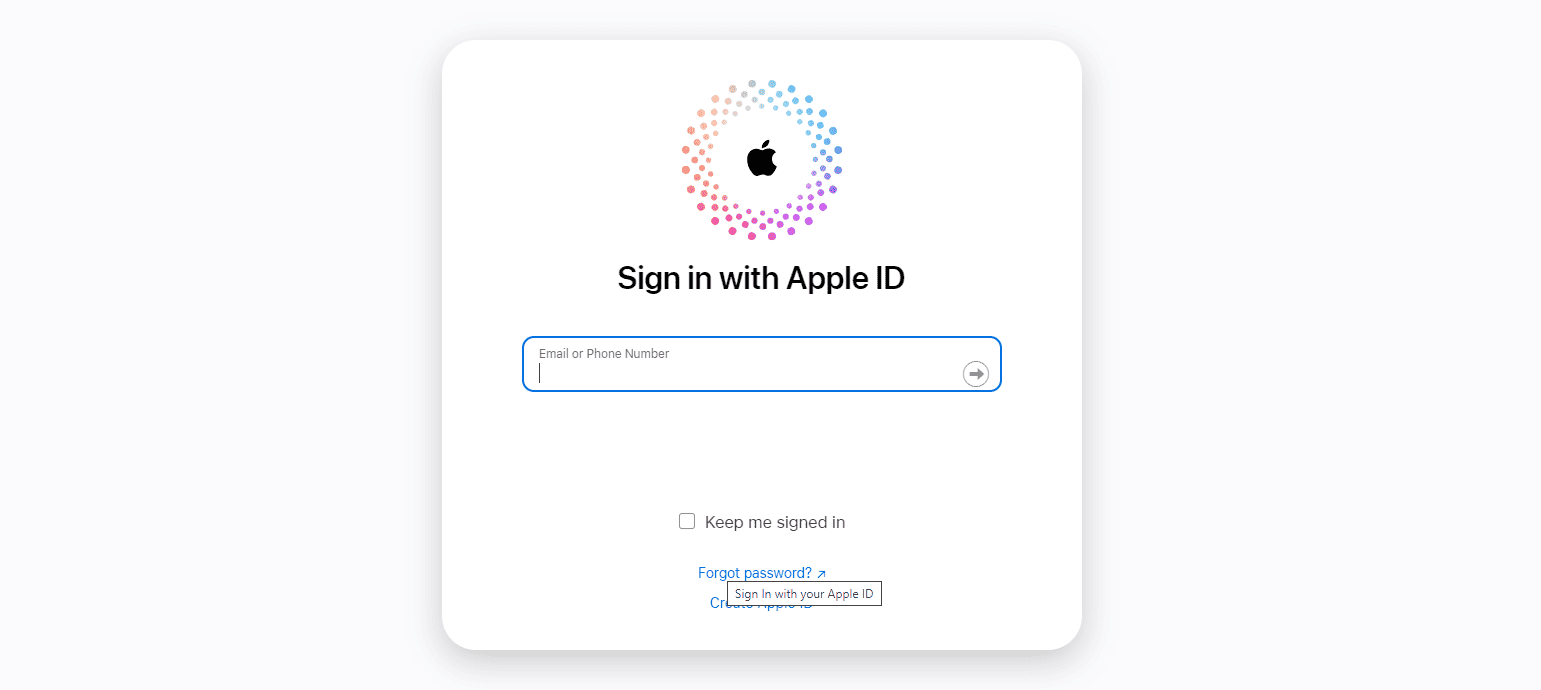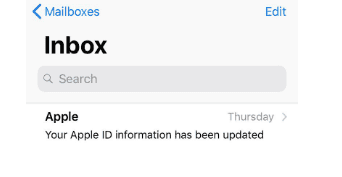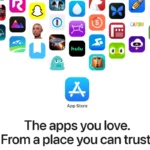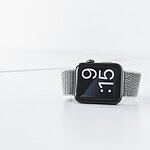iCloud is Apple’s cloud storage service that many people rely on to store photos, files, and important data. Keeping your iCloud account secure is very important. This article helps you learn how to spot signs that your iCloud account might be compromised. Look out for unusual activity, data breaches, and phishing attempts. It also explains what to do if your account gets hacked and lists crucial security measures.
It’s important to regularly check your iCloud account for any unusual signs. If you see devices under your Apple ID that you don’t recognize, or if apps or messages are sent without your permission, these could mean someone has accessed your account. Be concerned if you notice changes you didn’t make, like unexpected password reset requests or changes to your account information.To make your account safer, think about using two-factor authentication. If you detect a breach, secure your account immediately and consider changing your password.

Recognizing the Signs of an iCloud Account Breach
Concerned about your iCloud account’s security? Here’s how to spot potential red flags.
Suspicious Account Activity
- Unfamiliar Devices: Check if any unknown devices have accessed your iCloud account. Go to Settings > [Your Name] > Devices on your iPhone or iPad.
- Unexpected Login Attempts: Apple will often send email notifications about login attempts from new devices or locations. Be wary of these alerts.
- Changes to Your Data: Look for any changes to your contacts, calendars, or files that you didn’t make.
Data Breaches and Phishing Attacks
- Data Breaches: Websites and online services you use may experience data breaches. If your iCloud credentials were involved, change your password immediately.
- Phishing Emails and Messages: Watch out for suspicious emails or messages that ask for your iCloud login information. Apple will never request this information through these channels.
Other Warning Signs
- Unusual App Activity: Notice any apps you don’t recognize accessing your iCloud data? Revoke their access in your iCloud settings.
- Unexpected Charges: Check your purchase history for any apps, subscriptions, or media you didn’t buy.
- Account Lockouts: Apple may lock your account if it detects suspicious activity. This can be a sign of a hacking attempt.
What to Do If Your iCloud Account Is Hacked
- Change Your Apple ID Password: Choose a strong, unique password that you don’t use for any other accounts.
- Enable Two-Factor Authentication: This adds an extra layer of security to your account.
- Review Your Account Activity: Check for any suspicious logins, data changes, or purchases.
- Contact Apple Support: If you need further assistance or suspect your account is still compromised, Apple’s support team can help.
Protecting Your iCloud Account
| Security Measure | Description |
|---|---|
| Strong Passwords | Use a combination of upper and lowercase letters, numbers, and symbols. |
| Two-Factor Authentication | Add an extra layer of security by requiring a code from a trusted device to log in. |
| Beware of Phishing | Don’t click on links or attachments in suspicious emails or messages. |
| Update Software | Keep your Apple devices and software up to date to benefit from the latest security patches. |
| Monitor Account Activity | Regularly check your iCloud account for any unusual activity. |
iCloud Security Features
Apple has built several security features into iCloud to help protect your data:
- End-to-End Encryption: This protects sensitive data like your passwords and health information.
- Two-Step Verification: This older security method requires a code sent to a trusted device and a recovery key to access your account.
- Advanced Data Protection: This optional feature expands end-to-end encryption to most iCloud data categories.
What to Do If You Suspect an iCloud Compromise
Your iCloud account holds a lot of sensitive information – photos, documents, contacts, and more. Knowing how to spot signs of a compromised account can help you quickly address the issue and protect your information.
Signs Your iCloud Could Be Hacked
- Unauthorized Email or Text Messages: Changes to your iCloud account, like a password reset or new device login, that you didn’t initiate.
- Unfamiliar Devices: Devices that you don’t recognize listed under your Apple ID on Apple’s website.
- Suspicious App Activity: Apps installed on your device that you don’t remember downloading yourself.
- Unusual Purchases: Charges for apps, music, or subscriptions that you didn’t purchase yourself.
- Data Discrepancies: Changes in files, disappearing contacts, or unknown calendar events.
How to Protect Your iCloud Account
Here’s a table outlining how to take immediate action if you suspect a compromise, as well as tips for preventing future breaches:
| What to Do If You’re Hacked | Preventative Measures |
|---|---|
| Change your password immediately | Use a strong, unique password |
| Remove unknown devices from Apple ID | Employ two-factor authentication |
| Report suspicious activity to Apple | Check for suspicious apps regularly |
| Scan your devices for malware | Be cautious of phishing emails and links |
Important:
If you think your Apple ID has been compromised, act quickly. Visit Apple Support (https://support.apple.com/) for detailed steps on regaining control of your account.

Key Takeaways
- Unfamiliar devices or alerts can indicate a compromised iCloud.
- Unauthorized changes to your account require immediate attention.
- Strengthening credentials and prompt response are vital for security.
Recognizing the Signs of a Compromised iCloud Account
Being aware of the signs that your iCloud account may have been hacked is the first step to securing your personal information. Look out for unusual activity and be ready to take action if something seems off.
Unexpected Notification and Alerts
- Emails from Apple about unfamiliar sign-ins: If you receive notifications about a sign-in to your Apple ID from a device or location you do not recognize, this could be a sign of unauthorized access.
- Alerts for password changes: Watch for any alerts that inform you of changes to your account that you did not initiate, especially password resets.
Irregular Account Activity
- iTunes or App Store purchases that weren’t made by you: Check your purchase history for any transactions that look suspicious.
- Settings are altered without your knowledge: Look at your account preferences. Unexplained changes could indicate someone else has access.
Problems with Password and Authentication
- Password no longer works: If you cannot log in with your current password, it’s possible someone else has changed it.
- Two-factor authentication alerts: Receiving verification codes via text or to your trusted devices for no reason can signal that someone is trying to gain access to your account.
If you encounter these issues, take immediate steps to secure your iCloud account. The situation involves your personal security, so swift action is essential.
Preventive Measures and Immediate Actions
The key to safeguarding your iCloud account lies in both taking preventive measures and reacting swiftly to any potential threats. By enhancing account security and knowing how to respond, you can better protect your information.
Strengthening Account Security
Use two-factor authentication: It adds an extra layer of protection to your Apple ID. With two-factor authentication, even knowing your password won’t be enough for intruders to access your account.
Create a strong password: Make your password long and complex. Use a mix of letters, numbers, and special characters. Change it regularly and do not reuse passwords from other sites.
Regularly update your security questions: Choose questions only you can answer. Do not share these with anyone.
Responding to Potential Threats
Monitor sign-ins: Watch for alerts that indicate a new device has connected to your iCloud. If you did not sign in, take action immediately.
Change your password: Do this from your device settings the moment you suspect unusual activity. This can prevent further unauthorized access.
Review your account for unknown changes: Check your contact details and security settings. If you find changes you didn’t make, remove any unfamiliar email addresses or phone numbers.
Contacting Apple Support and Recovery Steps
Reach out to Apple Support: They can guide you if you suspect a security breach. They help with steps for account recovery and advice on securing your iCloud.
Verify account recovery options: Update your trusted phone numbers and backup email addresses. This ensures you’ll always have a way to regain control of your account if necessary.
Frequently Asked Questions
This section aims to equip you with knowledge on identifying and addressing security concerns related to your iCloud account.
What are the signs of unauthorized access to my iCloud account?
You might notice new device logins or changed account details. Files or messages that you don’t recognize could also appear.
How can I detect suspicious activity on my iCloud?
Regularly review your device list and account activity. Look for unrecognized devices or logins at unusual times.
What measures can I take to verify the security of my iCloud account?
Keep a close watch on your personal information within your account settings. Verify that all associated email addresses and phone numbers are correct.
How do I check for unfamiliar devices connected to my iCloud?
In the device settings, you will find a list of devices linked to your iCloud. Check this list and remove any that you don’t recognize.
What should I do if I suspect my iCloud account has been compromised?
If you’re worried about security, change your password immediately. Then, review your recovery methods and turn on two-factor authentication.
How do I review my iCloud account activity for potential breaches?
Investigate the detailed account history provided in your iCloud account settings. This history shows past logins and changes made to your account.







